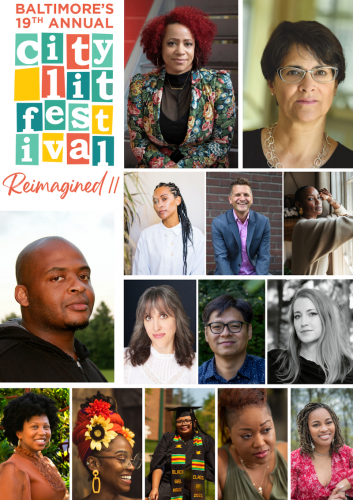A lot happened this week. Highlights: Ukraine, love, race and class, Black excellence, Ketanji Brown Jackson, Patti LaBelle, Arthur, and college basketball.


A lot happened this week. Highlights: Ukraine, love, race and class, Black excellence, Ketanji Brown Jackson, Patti LaBelle, Arthur, and college basketball.
1. Twitter: The Kyiv Independent
As the Russian invasion of Ukraine continues, I’m posting three resources I’ve found helpful that are reporting and contextualizing what’s happening in Europe. The Kyiv Independent provides “Top-notch English-language journalism” in the country. In addition to covering the invasion via Twitter, they also have updates and articles on their website for more of the necessary context.
2. Twitter: Kimberly St. Julian-Varnon
Kimberly St. Julian-Varnon, a University of Pennsylvania PhD student, has also seen an increase in Twitter followers over the past week. St. Julian-Varnon’s research is focused on Russia, the Soviet Union, Central Asia, and East Germany, and her public writing covers race, foreign policy, and culture in Russia, Ukraine, and the US.
3. Twitter: Terrell Jermaine Starr
Amazing moment on @NewDay as @terrelljstarr interviews his Ukrainian friend live on CNN as he drives him around Kyiv. Terrell is basically a CNN reporter now! pic.twitter.com/IgbrUewsV3
— Nora Neus (@noraneus) February 25, 2022
Terrell Jermaine Starr is a foreign policy journalist who writes about US-Russia politics and race in America. He is also a fellow at the Atlantic Council’s Eurasia Center, a nonprofit that “galvanizes US leadership and engagement in the world, in partnership with allies and partners, to shape solutions to global challenges.” Starr is currently in Ukraine providing coverage and analysis of the invasion.
4. Nautilus: Love Is Biological Bribery
A few years ago I saw Julia Bullock perform in Zauberland at the University of Michigan. The “encounter” with Robert Schumann’s Dichterliebe follows “a young woman, five months pregnant, [who] is forced to leave Syria and make the long journey to live in Germany… On the eve of her husband’s death, she has a strange dream where singing a concert of Schumann’s Dichterliebe is mixed up with the trauma of her journey from Syria and her life in Aleppo before the war.” During the post-performance talkback, someone asked Bullock about making something beautiful out of a tragedy. While I don’t remember the exact wording, in her answer Bullock pointed to the long history of tragedy in opera and the unanswerability of beauty and love as the reason we keep returning to them.
Anthropologist Anna Machin studies love and describes it as “biological bribery.” The experience of love, “for most people, most of the time… is lovely and warming and beneficial in terms of health. Unfortunately, our biology to seek love, crave love, find love, keep love, is a weakness. That visceral need can be exploited, it can be used to make us do things we don’t necessarily want to do… It can be used to manipulate or abuse or coerce us.”
It is true that love is also blinding: “when you fall in love for the first time is the activation of various areas of the limbic system and the neocortex. But we also see deactivations. These deactivations occur mainly in the brain area linked to ‘mentalizing.’ Mentalizing is the ability to tell someone’s intentions, and you need to be good at mentalizing to spot a liar or a cheat.”
For Machin, “the more I study [love], the more in awe I am of its complexity in the human species.”
5. Kersplebedeb: When Race Burns Class: Settlers Revisited (An Interview with J. Sakai)
A friend sent me this interview with J. Sakai this week. In this interview, published in 2000, Sakai discusses their book 1983 book Settlers: Mythology of the White Proletariat and the relationship between class, race, and settler-colonialism. Sakai traces these ideas throughout history, noting that “Pre-capitalist and even early capitalist Europe was a lot different from our racial stereotypes. It wasn’t that oppression and bigotry didn’t exist… But the whole context of ‘race’ was unlike what we usually think of.” Further, Sakai unequivocally denounces “this liberal intellectual polarity that ‘race issues’ and ‘class issues’ are opposites,” and calls the prioritization of one over the other “utterly useless!”
Sakai continues, “We have to really get it that race issues aren’t the opposite of class issues. That race is always so electrically charged, so filled with mass power, precisely because it’s about raw class. That’s why revolutionaries and demagogues can both potentially tap into so much power using it. Or get burned.”
6. Harper’s Bazaar: When Black Excellence Isn’t Enough
This essay right here. I have a very different relationship to Blackness and academia than what C Sylviolet Smith describes here, but this conversation is something I often think about. “Smith climbed the class ladder to graduate school. But she grappled with how her working-class background differed from other Black students in an elite space.”
Throughout my schooling, I was one of the “other Black students” within predominantly white academic institutions. It took me years to realize this, and it is still something that I find myself struggling to navigate. As I get older, I spend more time reflecting on both this conversation and its critique.
Filled with luscious descriptions so vivid I can touch them, in this essay Smith discusses her experience of elite spaces. I was particularly taken with the following passage and its dissection of raciolinguistic hierarchies within academic spaces:
“‘Considering the ontology of Blackness and those colonial impulses in quotidian Black life that go unnoticed, treating Blackness as a modality that—’
Her words sound familiar. I’ve heard them regurgitated in crowded classrooms and halls, and I’ve circled them in hefty books and articles, but in this moment, they feel too near for comfort, as if they’re coursing through my fingers and spine and eyelids, as if Ma and I have acted them out day after day in her studio apartment, but the fact that I still don’t fully know what they mean sends my eyelids to twitch. I wish she’d read me without all the empty academic jargon or cluttered four-syllable words, narrate my life back to me in memories and scenes, so I can finally understand what’s happening to me.”
7. Slate: Why Ketanji Brown Jackson Is Exactly Who the Supreme Court Needs Right Now
Joe Biden has nominated Ketanji Brown Jackson as a Supreme Court Justice. Jackson is the first Black woman to be nominated and, if confirmed, will be the first Black woman on the Supreme Court. The right is crying over identity politics; however, “there is a long tradition of presidents choosing justices on the basis of their race, ethnicity, gender, and religion. This consideration of identity brings huge benefits to the court: Diversity on the bench shores up public perceptions of its legitimacy and competence while bringing different viewpoints, backgrounds, and experiences to the bench. A less homogeneous court has fewer blind spots and a deeper understanding of injustices that it is duty-bound to address, including discrimination and voting rights.”
8. YouTube: Patti LaBelle: Tiny Desk (Home) Concert
I mean, the title of this video says basically everything you need to know: Patti LaBelle gave a Tiny Desk (Home) Concert. This performance is part of the NPR series’ celebration of Black History Month, “featuring legends in the world of R&B, jazz, gospel, and hip-hop. Each artist in this legacy lineup has helped to define Black music as we know it and will be performing a Tiny Desk concert for the first time.”
As Bobby Carter writes in the description, “The first song in Patti LaBelle’s Tiny Desk (home) concert sets the tone and quickly sums up the entire 15-minute performance. ‘Something Special (Is Gonna Happen Tonight)’ from her 1986 album Winner In You is a highlight from one of many chapters in her fabulous career.”
9. YouTube: Arthur Finale Full Episode | Blabbermouth / All Grown Up | PBS KIDS
After 25 years, the PBS children’s show Arthur aired its final episodes on Monday. Based on a book series by Marc Brown, the show follows the aardvark Arthur and his friends around Elwood city, and it’s the longest-running children’s show in history.
Growing up, my family didn’t have cable. Apart from Saturday morning cartoons, PBS Kids shows were the only TV I watched. Arthur was one of my favorite shows and to this day I get songs from the show stuck in my head. This final episode flashes forward and we get to see all of our favorite characters grown up. Of course, the internet had thoughts about everyone’s occupations. This episode was sweetly nostalgic, but why did they have to make D.W. a cop?!?!
10. YouTube: Brawl Breakdown – Michigan vs. Wisconsin Basketball
College basketball season is in full swing and so are the punches. The head coaches of the University of Michigan and University of Wisconsin men’s basketball teams got into an altercation leading to an all-out brawl between the two teams.
As broken down by The Maize and Blue Review, the impetus for the altercation was a timeout called by Wisconsin during the last few seconds of the game. Juwan Howard, Michigan’s head coach, didn’t like Wisconsin’s use of a timeout in the final seconds of the game. A post-game confrontation between Howard and Wisconsin head coach Greg Gard led to Howard “swip[ing] at assistant Wisconsin coach Joe Krabbenhoft at the end of the 77-63 loss to the Badgers. After a heated altercation with head coach Greg Gard, Howard repositioned and swiped at Krabbenhoft, who had seemingly exchanged words with Terrance Williams and possibly made contact with the player. After this initial swipe from Howard, Williams & Moussa Diabate exchanged blows with Jahcobi Neath of Wisconsin before enough staffers were able to corral the scrum.”
Howard was suspended for the rest of the season and fined $40,000, while Gard was not suspended and only fined $10,000.